Quentin Coldwater is a pain in the ass. It took me a long time—three books, really—to come to that conclusion, but as the notion grew on me, over the course of reading Lev Grossman’s Magicians trilogy, I started to do a strange thing: I started to like him for it.
I started reading the series thinking, This is the main character, so he’s our guy, right? He’s the hero? Even when he was annoying. Even when the women in the books kept suffering on his behalf, I kept on trucking, convinced something was going to happen. Eventually it did, but it wasn’t what I first expected. I’ve long wondered if Grossman knew, when he started The Magicians, what an unlikable little bastard he’d created, or if he did what I did as a reader and let himself be led by his main character at first. There’s a lack of self-consciousness to the first book, a willingness to let Quentin try to be the hero he thinks he must be. That fades as the series goes on, as Grossman explores other characters’ adventures and broadens his world.
Maybe I just love the idea that the author figured out his protagonist’s failings along with the rest of us. When The Magicians, Syfy’s adaptation of the series, started off with a Quentin Coldwater who was actually depressed, just not a mopey bastard, I got wary, not least because poorly presented mental illness is one of my least favorite narrative tropes. That notion fell somewhat by the wayside, though, as the show packed more and more into its first season. Two excellent things became clear very quickly: One, the showrunners made a very smart choice when they set Julia’s storyline, which isn’t explored until book two, alongside Quentin’s from the start. And two, they understood what Quentin Coldwater isn’t.
He’s not the hero.
Plot details from the first season of The Magicians are discussed below, with spoilers!
From its cliffhanger first episode to its cliffhanger finale, The Magicians played with tropes and types, taking its superb cast through the requisite is-it-all-in-my-mind episode (with a surprisingly effective payoff); trying out a haunted house one week; playing with expectations another. What looked like a fluffy aside involving a magical gin djinn led into one of the show’s most brutal scenes, as cocktail aficionado, sartorial maestro, and all around life of the party Eliot made short work of his evilly possessed boyfriend.
That moment, in “The Strangled Heart,” is the season’s pivot point. It’s also the point at which I started to ask how well the show would ultimately handle the themes it layered on top of its magical story. Like any adaptation, The Magicians changed things from its source material. Ultimately, it presented itself—cleverly—as an alternate timeline from the books, a satisfying way of allowing all versions of the story to be legitimate within its own narrative universe. It combined and modified characters, giving us a much more badass Penny and creating a love interest for him, the “sultry but damaged” Kady, who has bits of a few book characters in her makeup but is, as played by Jade Tailor, entirely her own person.
But it struggled, all season, with how much it wanted to be about more than just undoing one young man’s notion of heroism and importance. As I’ve written about before, the parallels in Quentin and Julia’s stories explored privilege, and how much harder it was for Julia to obtain the same things that were just handed to Quentin. Terrible things happened to those around Quentin; many of those things happened to Eliot, a gay man, or Penny, a man of color, while Julia’s narrative overflowed with struggle and pain and death.
I do think the show aimed to demonstrate something with this, to use Quentin’s relatively easy existence to illustrate how everything is harder for everyone else. No one else thought they were any sort of chosen one, and their heroism manifested not out of a desire to follow a certain narrative path, but because it was necessary. But the things that happened to everyone else too often seemed added primarily to jack up the drama. Not sure what to do with Eliot? He can always be more miserable! Penny too badass? Make him suffer! It too often gave the impression that there was no there there.
In her essay “Some Men Are More Monstrous Than Others,” Kameron Hurley makes a point about the difference between a television show that portrays misogyny and a show that is misogynist. Mad Men is her example of the former; True Detective, the latter. The Magicians, for the most part, stays just on the side of the former. It depicts racism, sexism, bigotry, but the show itself isn’t racist, sexist, bigoted. It’s set in a world where those things exist and cannot be avoided; Quentin is the beneficiary of a system that rewards him just for being him, even though he accomplishes very little. He is, as Jane Chatwin tells him, the volunteer tomato: He’s in the fight because he chooses to be. He doesn’t have to be there. Eventually, he realizes this—and accepts that it doesn’t make him special, or heroic, or powerful, or even necessary. It’s a great moment for Q. But at the end, The Magicians swerved dangerously close to the other side of the line when it equated being touched by a god with the presence of god semen, and erased Eliot’s sexuality.
Eliot is a brilliant character, and while his base personality is imported straight from the books, Hale Appleman has such presence, and such a delicious way with a bitter/sarcastic/funny line, that he gives Eliot unexpected depths. But the season’s worst cliches often fell to his character, and never more egregiously than in the finale, in which Eliot married a Fillorian woman (who also has no say in the matter) in order to advance a half-baked plot.
Bafflingly, the show presented this situation not as a terrible choice that Eliot made for the greater good, but as something Eliot almost cheerfully opted to do because it might bring meaning to his life. This is what all of Eliot’s misery, all the time he’s spent being neglected by his friends, was for: to set him up to make this choice. Sex and drugs and magic only led to misery, so somehow, maybe being magically trapped in a straight marriage for all time will fix it?
Neither this nor the bottle of god-jizz Quentin gets from Ember, one of the gods of Fillory, are from the books. This icky plot point is a matter of taking an unpleasant notion from The Magician King and making it weirdly, grossly literal. Julia and her friends, believing they were summoning a benevolent goddess, instead conjured up Reynard, the trickster fox-god, who killed almost everyone and possessed Richard’s body. Julia put herself between him and Kady, who escaped while Julia was god-raped.
What this does to Julia is a huge part of her story, and her contact with a god has repercussions. Here, that god-contact is transformed into … the transfer of power via semen. God-jizz bestows the power of a master magician, which is how Julia and Alice, who drinks the bottle of gross, can reach true magical heights.
Our already powerful female magicians are not deemed powerful enough until they take manliness into themselves. And this, as with Eliot’s story, is where The Magicians went drastically astray. If I squint, if I put on my rosiest glasses, I can see what they were trying to do, because they kept almost, almost making an effective commentary on sexism, on the mistakes of believing narratives that privilege masculinity at the exclusion of everything else. Men believing they’re the only heroes are not helpful. Stories about manly power turn out to be untrustworthy, because in the end, when they confront the Beast, Alice is still struck down. Penny still loses his hands (which seems needlessly cruel, given what he’s already gone through). Margo and Eliot, inexplicably, just get knocked out.
Frustratingly, book-Alice was powerful enough without any god-given power-ups, though the power she channeled had terrible consequences. But the show sacrificed Alice’s narrative for Julia’s in a fascinating, if flawed, change. In the finale, Julia learned a lot of things, all of which add up to one truth: her narrative was never her own. This is true of all of the main characters, playing out timeloops at the whim of Jane Chatwin, but Julia really believed that she had found something bigger and better than Brakebills.
When her memories came roaring back, though—what did she make of her story then? She didn’t make the choice that ultimately led her into Reynard’s presence. And so in the end, when given an opportunity, Julia takes it—she takes the magical knife and the Beast, who already knew how to kill a god. She takes her story back into her own hands.
Or was it her story all along? This season has made a quiet but interesting argument for Julia as the true central character, which delighted those of us who read the books and came to the same conclusion. But given that the showrunners have said that they have six seasons’ worth of material for The Magicians, I have another idea: What if there is no main character? What if every season centers on one of the key six—Quentin, Julia, Alice, Penny, Margo, and Eliot—while including all the others? It would be a brazen way to assert the absence of a single hero, and would give me hope that maybe someday Margo gets her due, and Eliot gets his life back. Everyone is the protagonist of their own story, so why not explore that concept, season to season?
I’m not holding my breath for this to become a reality, but this approach would fit well with what I think The Magicians is really about: not magic, or heroics, or inevitable death, but growing up, and the fact that you always do that alone. A lot of coming-of-age stories are about the lessons you learn early, but this is about the lessons that come later, in your 20s, when you might feel like you should have learned all the hard ones already. And one of the hardest lessons is that believing a story about yourself won’t make it true, even—especially—if you think you’re the hero.
Molly Templeton would like to see some show have a new central character every season, even if it isn’t this one. You can often find her having opinions about things on Twitter.










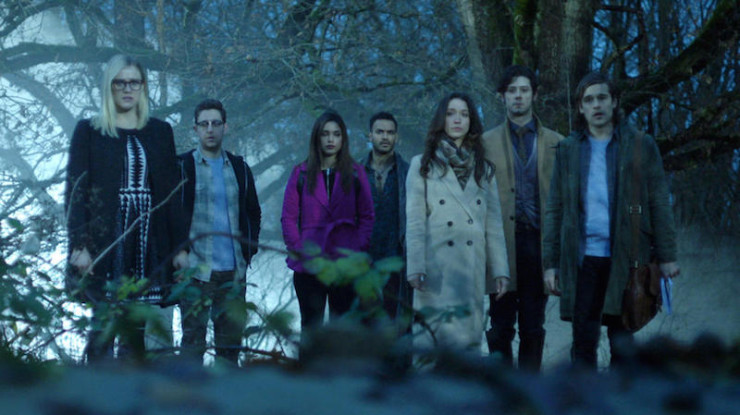
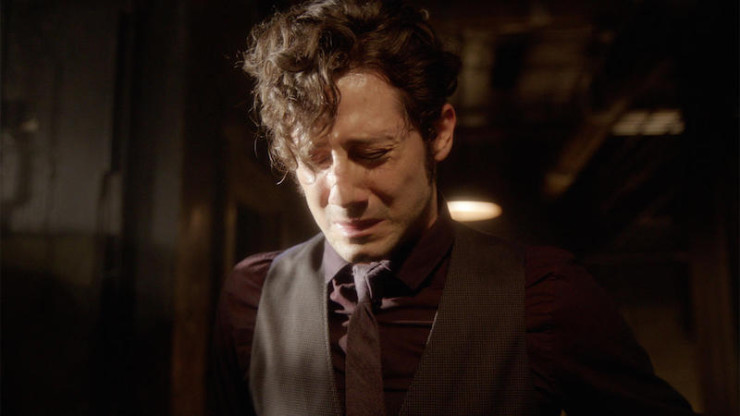
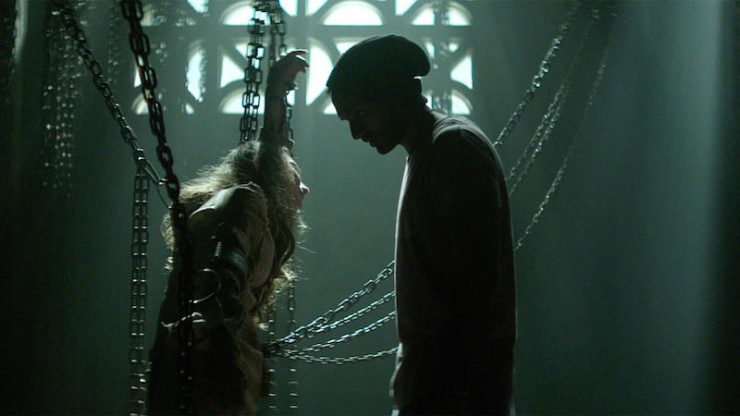
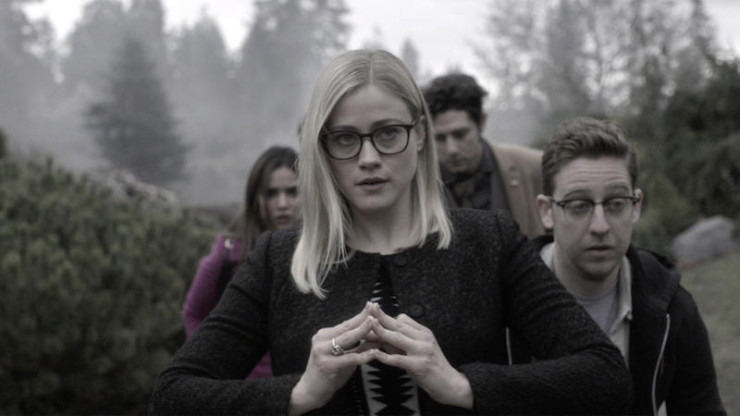
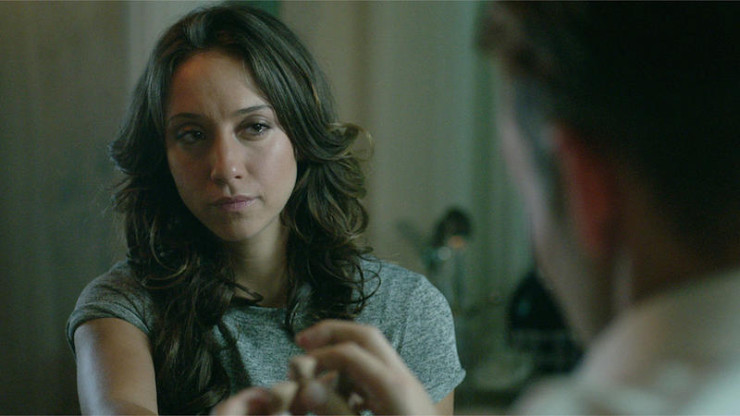



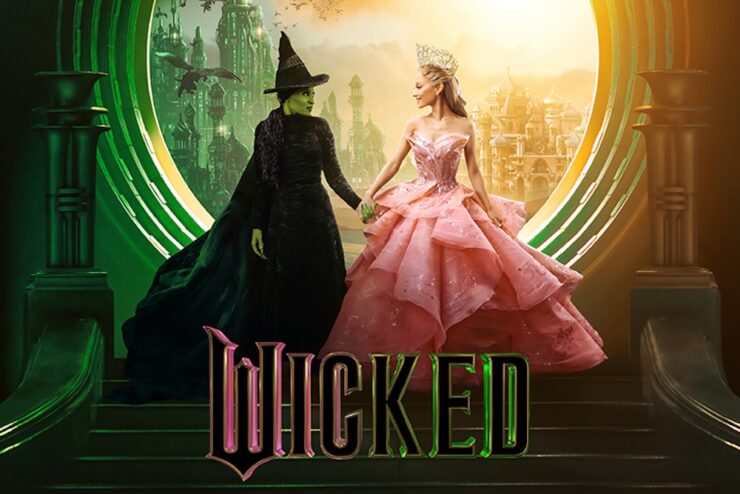
I haven’t read the books, but the series made me not want to read them. Maybe I’m not the target audience. Once someone gets an education in magic, it isn’t convincing that there are things worth using magic for on Earth. It didn’t seem believable.
I don’t need to like a character or see a clear hero to get into a TV or book series. I’m enjoying all the ways that writers are toying with our expectations of heroism and giving us more than just good versus evil. I just wasn’t interested in the world the characters inhabited.
Thank you for this analysis. After watching the season finale, none of the sites whose reviews and recaps I’d been following all season posted a single word about it. This is the only case where I’m very sorry to have seen the adaptation before reading the books. My regret is mainly because I didn’t expect what happened to Julia.
I thought the warnings during the broadcast were about the graphic violence during battle magic scenes. By the end, I was shocked and disgusted. There was not enough mind bleach material to get that out of my head – not even things that worked after watching Jessica Jones.
The change in Eliot was another unpleasant surprise, and his marriage would have fit better as an acknowledged sacrifice for the team. I wanted to see him do something to make up for putting everyone on the team in danger twice. An arranged marriage is not my idea of atonement. Now that you’ve confirmed that this and the god semen plot points were not in the books, I disagree that the showrunners came close to the other side of the line. They’ve really crossed it.
If this show continues for six seasons, it might be worth binge watching in the future. In the meantime, the books are probably a better choice.
I’m a bit puzzled that the rape and god-jizz drinking hasn’t raised a bit more noise. The internet, or parts of it that I frequent, has been relatively quiet about the level of disturbing violence done to Julia, especially compared to the uproar over Sansa’s rape in GoT last season and, to a lesser extent, the rape of Jamie on Outlander.
Most likely, this is because The Magicians has a far smaller audience than the GoT juggernaut, but hopefully it’s not because we’re getting used to sexual violence as a plot device. Then again, SVU has been on TV for far too long.
@3 – I was a little surprised too. I’m sure it has a much, much smaller audience, but it barely raised a blip. There is some discussion out there, though – BookRiot had a frustrated piece, and the PopMatters review of the finale just begins, “No.” I’m holding out hope that these things will be addressed next season, but we have to wait a year to find out!
Following up a few points:
1. “the showrunners made an very smart choice when they set Julia’s storyline, which isn’t explored until book two, alongside Quentin’s from the start.” Strongly agree.
2. “What if every season centers on one of the key six?” Surely the TV show turned away from this path right away: see point 1, which acknowledges that the show mixes up characters’ stories more than do the books.
3. “the showrunners have said that they have six seasons’ worth of material.” I’m not sure that this is a show that should go beyond two or three seasons.
What do the showrunners mean by that? That they will base the show on all three books? I’ve just re-read the third, and don’t think that it would fit well into this TV series, given some of the choices already made.
Or do they mean that there will be some semi-spinoff stuff. The Magicians: High School Penny for example?
@1 Actually, I think the novels (especially the first one) do a good job of examining the effect of being able to do magic on the ‘normal’ American teenager/youngish adult. It’s a reaction to Harry Potter and Narnia. I can’t speak for the TV show, since I’ve only seen the first two episodes, but if you find it difficult to believe in the co-existence of magic and our everyday world, The Magicians (the books) is right up your alley.
As a fan of the books it took me a while to warm to the changes in the TV series. But after the last episode I’m back disliking the changes they’ve made.
First of all the timing. In the books Quentin et al have all finished their time at Brakebills and been out in the real world for 1-2 year before they even get to Fillory. But in the TV series they haven’t even finished one year of training before they’re off to face against the Beast. I mean c’mon. You’re facing off against a master magician with six fingers and no one has even finished their training. And at least in the books Alice was strong enough on her own merits, without the whole god semen thing.
Secondly Julia. I was looking forward to seeing her racing up and down the east and west coast looking for more magic, but it never happened. It feels like a real missed opportunity to highlight the real difference between going to Brakebills and not. Julia’s struggle to find new magic is a big part of her story and why she decides to join Free Trader Beowulf and why they let her in. Instead Quentin and Julia are basically at the same level magically speaking (I’m assuming) by the end of the series. Julia works and works an works for every scrap of magic she can get her hands on in the book, which eventually wears her down emotionally. But in the tv series they just make her endure terrible things to get her to the same space. And then the rape. What I wanted to see was Julia’s rape handled in a similar way to Joyce’s death on Buffy. Instead it feels like they are using this traumatic event just to get a cliff hanger ending.
And don’t get me started on Elliot.
I’m just hoping that Jane Chatwin survived, so she can reset the clock and we can do it again, but better.
The show didn’t erase Eliot‘s sexuality (which is bisexual and not gay. Bi-erasure is too common, so when a bi-person is clearly depicted as such, it would be good to acknowledge that): his marriage was not presented as him getting the girl, but as a tragedy for him: he got a say in this only as far as he could choose to get killed by the Beast instead. I didn’t see any of that cheer mentioned in the article. It was not the marriage that would bring meaning to his life, but the fact that he had a role in the plot, that he had been chosen as the king. The show has been playing with many classic fantasy and fairy tale tropes, and I’m curious to see what they’re going to do about this arranged marriage. So this could be interesting in the next season, but if that marriage can’t be an open one as Eliot wishes, I’m afraid the only out for the show will be to kill his wife, and there have already been far too many women who were introduced only to be immediately killed.
The part with Julia was gross. I wasn’t expecting anything good for her, but not that either. We haven’t seen all the consequences yet, but I’m sure there were ways to get to the same point without the rape. I’m not sure it was the god sperm itself that made her capable of holding the knife though. She had an extremely traumatic experience come back to her all at once, and that might have been enough to make her so powerful.
I just fucking hate Quentin so much, i get he’s supposed to be unlikeable or passive aggressive aka petty king but like that doesn’t mean he has to be so PATHETIC!!!!!!!! lol.
Just came here to say THANK YOU to the person pointing out that Eliot is BISEXUAL. Bisexual erasure is soooo real. And the one thing i adored about this series the most was getting some relatable representation
So, we don’t need another hero? Of course not, there’s enough heroes in the delusions of fantasy writers everywhere so it’s refreshing to have an anti-hero. That’s actually why I do like Quentin, because he’s not a hero, he’s a human who, despite his white-male privilege, is suffering from depression because this real world is fairly f’d up and so many people are seriously lost because of that. So he’s navigating it without the emotional maturity of someone 20 years his senior, what a shock. Yes, what happened to Julia is on next level f’d up, and where is the line between realism and fantasy in TV? But 1 in 4 women are raped and that doesn’t include the unreported assaults. As much as I do question just how far some shows take violence I did see how they looked at the aftermath of that and was grateful they didn’t just shrug it off and showed there’s some pretty serious consequences to this. It’s a discussion that consistently needs to be had until it never happens ever again. I love the individual journeys of each of these characters. They are flawed but passionate people and what Margot says early on to Quentin is that magic comes from pain. Which is true, growth from trauma is the most expanding powerful experiences in this world. We all experience pain, we all duck up, and we all have the capacity to choose to own that, to heal, to grow, and to make little but powerful acts of selfless courage for those around us. That’s what I see in The Magicians.
PS Hell yeah, to no more bi-erasure!!